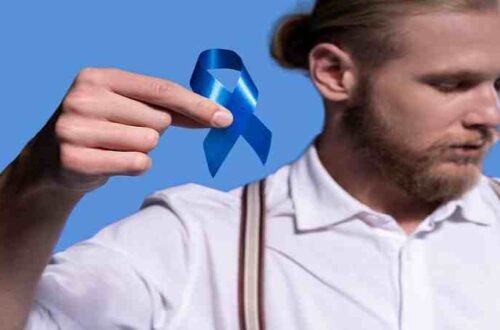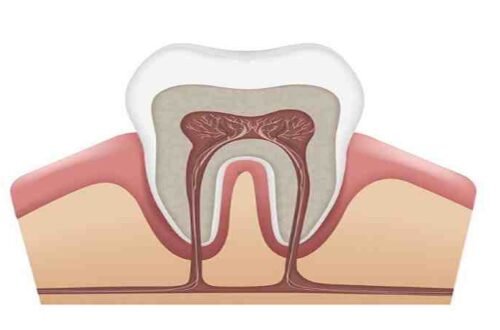Persistent depression is a debilitating condition that affects millions of people worldwide, making it challenging to lead a fulfilling life. Traditional treatments, such as medication and therapy, don’t always work for everyone. This is where innovative approaches like Transcranial Magnetic Stimulation (TMS) come into play. One organization leading the charge in this field is Concierge TMS, a specialized service offering TMS therapy to those battling persistent depression. Located in Massachusetts, Concierge TMS is committed to providing compassionate and professional care to its patients, using cutting-edge NeuroStar technology. In this blog post, we’ll delve into the specifics of TMS therapy, explore the services offered by Concierge TMS, and highlight why this FDA-approved, non-invasive treatment is changing lives.
Understanding Persistent Depression and Its Challenges
Depression is a common mental health disorder characterized by persistent feelings of sadness, hopelessness, and a lack of interest in activities once enjoyed. While many people experience depression at some point in their lives, persistent depression, also known as Major Depressive Disorder (MDD), can be particularly challenging to treat. For some, antidepressants and psychotherapy provide relief, but for others, these traditional methods are not enough.
The World Health Organization (WHO) estimates that over 280 million people globally suffer from depression, with MDD being one of the leading causes of disability worldwide. The impact of persistent depression on daily life can be profound, affecting work, relationships, and overall quality of life.
Despite the availability of numerous treatment options, about 30% of patients with MDD do not respond to conventional treatments. This is where innovative therapies like TMS therapy come into the picture, offering hope to those who have exhausted other options.
What is Transcranial Magnetic Stimulation (TMS) Therapy?
Transcranial Magnetic Stimulation (TMS) therapy is a non-invasive, FDA-approved treatment that uses magnetic fields to stimulate nerve cells in the brain. Specifically, TMS targets the prefrontal cortex, a region of the brain that is often underactive in individuals with depression. By stimulating this area, TMS helps to restore normal brain function and alleviate depressive symptoms.
The process is straightforward: patients sit comfortably in a chair while a magnetic coil is placed against their scalp. The coil generates a series of magnetic pulses that penetrate the skull and reach the brain. These pulses stimulate nerve cells, improving communication between different regions of the brain.
TMS therapy is typically administered throughout 4 to 6 weeks, with sessions lasting about 20 to 40 minutes each. Unlike medication, TMS does not involve any systemic side effects, such as weight gain, sexual dysfunction, or sedation, making it an attractive option for many patients.
The Science Behind TMS Therapy
The effectiveness of TMS therapy lies in its ability to modulate brain activity. Depression is often associated with decreased activity in the prefrontal cortex and increased activity in other areas, such as the limbic system, which regulates emotions. By stimulating the prefrontal cortex, TMS can help to rebalance brain activity, leading to an improvement in mood and cognitive function.
Numerous studies have demonstrated the efficacy of TMS in treating depression. A landmark study published in 2007 found that patients who received TMS therapy experienced a significant reduction in depressive symptoms compared to those who received a placebo. Subsequent research has confirmed these findings, with many studies reporting response rates of 50-60% and remission rates of 30-40%.
TMS therapy has also been shown to be effective for patients with treatment-resistant depression, a particularly challenging form of the disorder. In a study published in the Journal of Clinical Psychiatry, 58% of patients with treatment-resistant depression responded to TMS, with 37% achieving remission.
Concierge TMS: A Commitment to Compassionate Care
Located in Massachusetts, Concierge TMS is a leading provider of TMS therapy for patients with persistent depression. What sets Concierge TMS apart is its commitment to providing personalized, compassionate care tailored to each patient’s unique needs. The team at Concierge TMS understands that depression is not just a medical condition but a deeply personal experience that affects every aspect of a person’s life.
The professionals at Concierge TMS take the time to get to know each patient, ensuring that the treatment plan is aligned with their goals and expectations. This patient-centered approach is at the heart of everything Concierge TMS does, from the initial consultation to the final treatment session.
NeuroStar Technology: Advanced Tools for Effective Treatment
Concierge TMS utilizes NeuroStar technology, one of the most advanced TMS devices available. NeuroStar is the first FDA-cleared TMS system and has been widely recognized for its safety and efficacy in treating depression.
The NeuroStar system is equipped with advanced features that enhance the precision and effectiveness of TMS therapy. For instance, it uses a proprietary method called NeuroStar Navigation to ensure that the magnetic pulses are accurately targeted at the prefrontal cortex. This precision reduces the likelihood of side effects and improves treatment outcomes.
Additionally, NeuroStar is designed to provide a comfortable experience for patients. The device is quiet, and sessions are typically painless, with many patients reporting a tapping sensation on their scalp during treatment. The non-invasive nature of NeuroStar TMS therapy means that there is no need for anesthesia, and patients can resume their normal activities immediately after each session.
The Treatment Journey at Concierge TMS
At Concierge TMS, the treatment journey begins with an in-depth consultation to assess the patient’s mental health history and determine if TMS therapy is a suitable option. This initial assessment is crucial in developing a personalized treatment plan that addresses the specific needs of the patient.
Once the decision to proceed with TMS therapy is made, the team at Concierge TMS guides the patient through every step of the process. The treatment sessions are conducted in a comfortable, private setting where patients can relax and focus on their recovery.
Throughout the treatment course, the team at Concierge TMS closely monitors the patient’s progress and makes any necessary adjustments to the treatment plan. This continuous monitoring ensures that patients receive the most effective care possible.
Patient Care Beyond Treatment
The commitment to patient care at Concierge TMS extends beyond the treatment sessions. The team understands that recovering from depression is an ongoing process that requires support even after the TMS therapy is complete. Concierge TMS provides resources and guidance to help patients maintain their mental health and prevent relapse.
Patients are encouraged to stay connected with their healthcare providers and to seek additional support if needed. The compassionate approach at Concierge TMS means that patients are never alone on their journey to recovery.
Success Stories: Real-Life Impact of TMS Therapy
The success of TMS therapy at Concierge TMS is best illustrated through the stories of patients who have experienced life-changing improvements in their mental health. Many individuals who had lost hope after years of unsuccessful treatments found relief and renewed optimism through TMS therapy.
One such patient, a 45-year-old woman named Sarah, had battled depression for over a decade. Despite trying multiple medications and therapies, her symptoms persisted, leaving her feeling hopeless and exhausted. After learning about TMS therapy at Concierge TMS, Sarah decided to try it. Throughout her treatment, she began to notice a gradual improvement in her mood and energy levels. By the end of her treatment, Sarah reported a significant reduction in her depressive symptoms, allowing her to return to work and reconnect with her family.
Another patient, John, had struggled with treatment-resistant depression for years. He had tried various medications and even undergone electroconvulsive therapy (ECT) without success. John was initially skeptical about TMS therapy but was willing to try anything to alleviate his suffering. After completing his TMS therapy at Concierge TMS, John experienced a dramatic improvement in his mental health. He described the treatment as life-changing and credited Concierge TMS with helping him regain control of his life.
These success stories highlight the transformative potential of TMS therapy and the compassionate care Concierge TMS provides.
The Future of Depression Treatment
As research into mental health continues to advance, treatments like TMS therapy are likely to become more widely available and accessible to those who need them. Concierge TMS is at the forefront of this movement, offering a cutting-edge treatment option for patients with persistent depression.
Looking ahead, TMS therapy may also be used to treat other mental health conditions, such as anxiety, PTSD, and OCD. The non-invasive nature of TMS therapy makes it a promising option for patients who are unable or unwilling to take medication or undergo more invasive procedures.
Why Choose Concierge TMS?
Choosing the right provider for TMS therapy is an important decision that can significantly impact the outcome of treatment. Concierge TMS stands out for its commitment to personalized, compassionate care and its use of advanced NeuroStar technology.
Patients who choose Concierge TMS can expect a supportive and professional environment where their well-being is the top priority. The team’s dedication to patient care ensures that each individual receives the attention and treatment they need to overcome their depression and reclaim their life.
Conclusion
Persistent depression is a serious condition that requires effective and innovative treatment approaches. TMS therapy, as offered by Concierge TMS, provides a promising solution for those who have not found relief through traditional methods. With its compassionate, patient-centered approach and use of advanced NeuroStar technology, Concierge TMS is making a significant difference in the lives of patients in Massachusetts and beyond.
If you or someone you know is struggling with depression and seeking an alternative to conventional treatments, consider exploring TMS therapy at Concierge TMS. The journey to recovery may be challenging, but with the right support and treatment, it is possible to find hope





